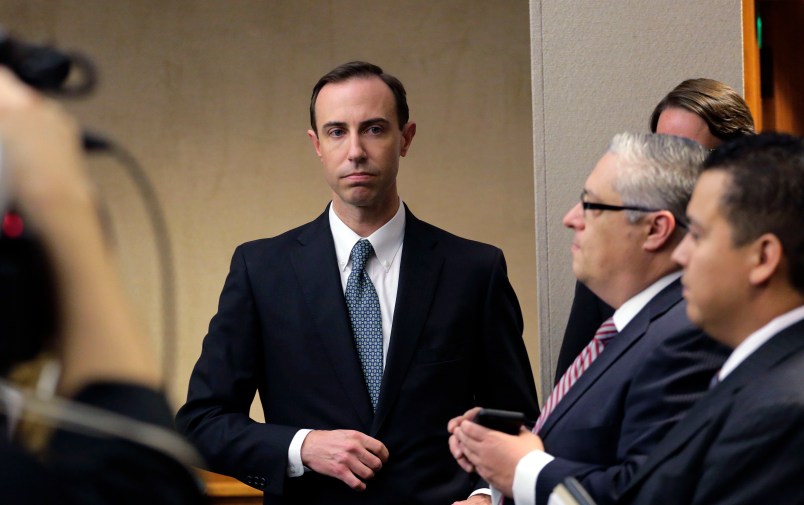Texas has agreed to significantly narrow its use of driver’s license data to identify alleged non-citizens on its voter rolls, as part of a settlement announced Friday in the lawsuit it faced for trying to used this flawed data set to root out alleged voter fraud.
The state provided a list based on driver’s license data to county officials in January so they could begin purging their vote rolls, and high-profile Republicans claimed that it showed nearly 100,000 alleged non-citizens were illegally registered to vote. But officials found thousands of duplicates and false positives on the list, and the state soon found itself facing a lawsuit.
The procedures outlined in Friday’s settlement agreement stand to prevent Texas from targeting relatively recently naturalized citizens, which had happened with its original list.
To compile the January list, Texas’ Secretary of State office had compared records from the Department of Public Safety to its voter rolls. The state specifically looked at DPS records of individuals who had presented documents indicating they were not citizens when obtaining a driver’s license or other state ID.
The problem with Texas’ approach — which was obvious as soon as the state announced the list — was that it was catching individuals who had gotten driver’s licenses as non-citizens and then later became citizens, thus becoming eligible to vote. In fact, voter registration services are often provided at naturalization ceremonies.
At the time, the secretary of state’s office dismissed concerns about the data not being up-to-date, with its spokesperson claiming to the New York Times that his office could not ” see a situation in which this would produce a false positive.”
The spokesperson, Sam Taylor told the Times that their approach “very little, if any” room for error.
Friday’s settlement is a tacit admission that there was, in fact, plenty of room for error.
Voting rights groups sued Texas as well as some of the county officials who were starting to use the list to purge their rolls. Under the instructions released by Secretary of State David Whitley (pictured above) when he announced the list, the county officials were encourage to remove the individuals identified if they did not respond to a notice seeking confirmation of their citizenship status.
Under the procedure outlined in the new settlement, the secretary of state will look at the date of voter registration when comparing its voter rolls to the DPS data, and only send over to counties the names of individuals who presented DPS non-citizen documents after registering to vote.
The settlement also spells out matching criteria “to maximize the likelihood that the individual identified in the DPS database is the same individual identified” in Texas’ election management database.
“Naturalized American citizens in Texas should not have to worry about their state threatening to purge them from the voting rolls,” said Paul Smith, vice president of litigation and strategy at Campaign Legal Center, one of the groups that sued Texas over the list. “Today’s legally binding agreement means Texas can no longer target naturalized U.S. citizens for potential criminal investigation and removal from the voting lists based on stale data.”
Read the settlement below:






